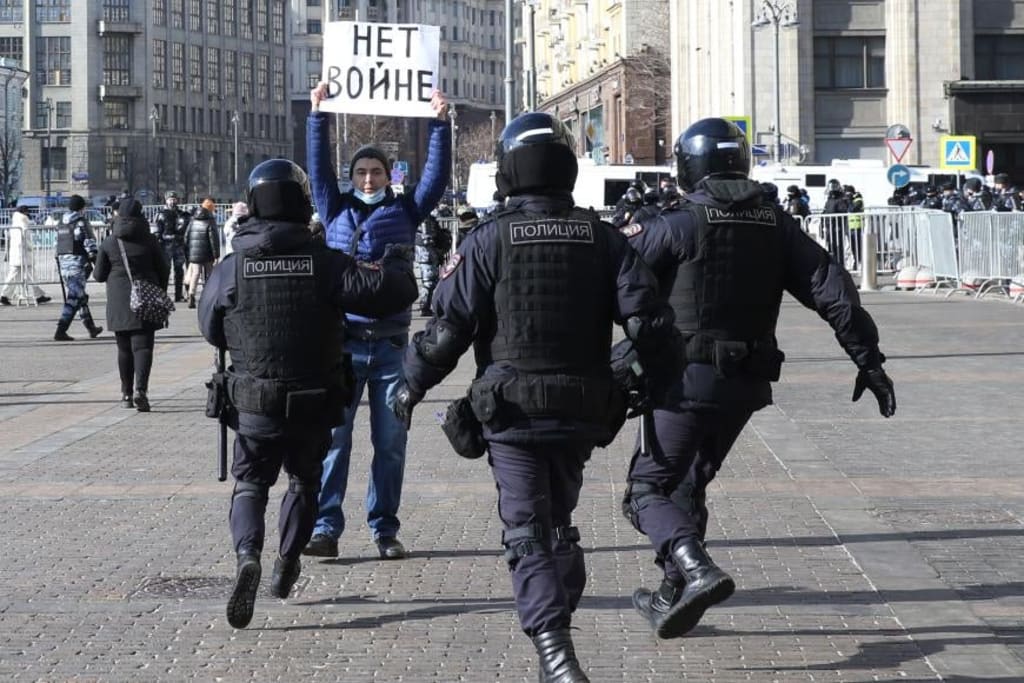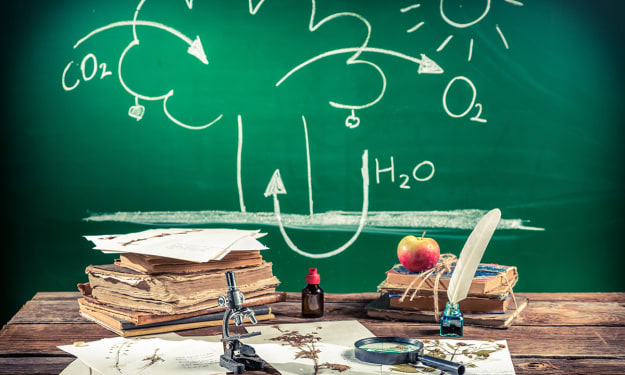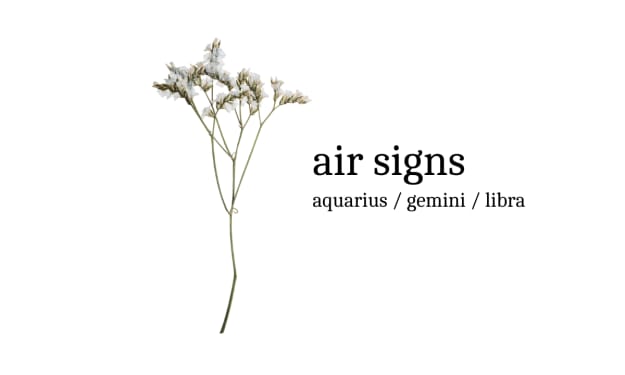Human Rights Watch Condemns “Litany of Human Rights Crises”
Human Rights Watch has released its“annual review of human rights around the globe.” Find out why Human Rights Watch described the year as a “litany of human rights crises.”

This month marks the fourth anniversary of one of my volunteer positions. I’m an Amnesty International urgent action volunteer.
Every week or so, they send me a notification about someone, somewhere in the world who’s suffering a human rights violation. They may have been jailed without a trial, or arrested for speaking their mind or facing the death penalty for something that’s not a real crime.
My job, along with thousands of others, is to write to the authorities and appeal to them to restore the victim’s rights. This can include demands for actions like releasing them from jail, dropping charges against them, allowing them access to their own lawyer or giving them the medical treatment they need.
Tens of Thousands of People Trying to Do Their Bit
More often than not, it works, and the victim is able to get on with their life. It’s rewarding when I hear that news, but I’m just one of tens of thousands of people trying to do their bit.
There’s another human rights organization that focuses less on mass membership and more on in-depth research and reporting. Human Rights Watch (HRW) tends to tackle issues on a broader scale, getting to the political and historical roots of wide-scale crises.
HRW released its World Report 2023 this week. It’s a tough document to summarize, because it assesses the status of human rights in roughly 100 countries.
“Unchecked Authoritarian Power Leaves Behind a Sea of Human Suffering”
According to Tirana Hassan, HRW’s acting executive director, the main theme that emerged in 2022 was that “unchecked authoritarian power leaves behind a sea of human suffering.” Instead of trying to “boil the ocean” in one post, I’ll be covering some of the main points here, and then returning to more specific issues in future editions.
Let’s start with my home country of Canada. The most severe and longstanding human rights issue here is our ongoing discrimination against indigenous peoples.
Even though we’re one of the most water-rich places on Earth, for some reason, our government can’t seem to deliver safe drinking water to indigenous communities. As of September 2022, 28 First Nations communities were still under long-term water advisories.
Canada - 28 First Nations Under Water Advisories
Our government had to sign a US $14 billion settlement with First Nations children and families for needlessly taking children away from their families. That happened because the Canadian government doesn’t properly fund child welfare services in Indigenous communities.
Canadians witness an impressive ceremony and fine words at the presentation of the National Action Plan on Missing and Murdered Indigenous Women and Girls Yet, a performance assessment in June of 2022 called its actual implementation a “failure.”
Other issues noted by HRW included corporate accountability for Canada’s mining sector and online education products that didn’t protect children’s privacy and safety. Our government is also dragging its feet on the case of four dozen Canadians imprisoned in a Kurdish-held part of Northern Syria.
Canada is All Talk and No Action on Climate Change
Another perennial issue in Canada is climate change. As with Indigenous rights, our government continues to be all talk and no action.
Despite the fanfare around Canada’s Paris commitments, our country’s climate policies simply won’t reach the target of keeping temperature rise below 1.5˚ C. The main reason is that the Canadian government continues to work at cross purposes by subsidizing the fossil fuel industry more than any other G20 country.
Canada has a stellar reputation on the world stage, and our current prime minister, Justin Trudeau goes to great lengths to burnish that image. Unfortunately, his efforts tend to emphasis image over substance.
China and Russia Bore the Brunt of Criticism
Now, let’s talk about the rest of the world. Russia and China bore the brunt of HRW’s criticism. Vladimir Putin’s illegal invasion of Ukraine, include deliberate attacks on civilians drew the brightest spotlight.
Xi Jinping’s rounding up of roughly a million Uyghurs into an open-air prison came a close second. China’s assault on human rights in Hong Kong and Tibet also drew extensive criticism.
Canada isn’t the only country with hypocritical double standards. Joe Biden pledged to make Saudi Arabia a “pariah state” when he was running for president, but then gave the murderous Mohammed Bin Salman a friendly fist bump when they met in person.
Pakistan Said Nothing About China’s Treatment of Muslims
Pakistan made a grand display of opposing human rights abuses against Muslims in nearby Kashmir. However, since it has close ties to Xi Jinping’s China, it said nothing about the treatment of the Uyghurs and other Turkic Muslims living in Xinjiang.
Executive Director Hassan makes an excellent point about why countries end up facing human rights crises in the first place. She describes a vicious cycle in which governments fall short of their legal obligations to protect their citizens.
Inevitably, those citizens find ways to protest and even rebel, leading to even more abuse from the government. That generates more resistance, leading to more oppression and so on.
“Litany of Human Rights Crises”
In her introduction to the report, Executive Director Hassan described the year as “a litany of human rights crises.” She goes on to make the point that the disturbing trend toward autocratic leaders in the hope of maintaining stability is misguided.
As she explains, “The result is frequently massive corruption, a broken economy, and a hopelessly partisan judiciary. Vital civic space is dismantled, with activists and independent journalists in jail, in hiding, or fearing retaliation.”
It’s hard to put into words exactly why we’re all entitled to certain fundamental rights. Thomas Jefferson famously wrote that we’re endowed with them by our creator. Others say we deserve them just being human.
“Foundation of Freedom, Justice and Peace in the World”
The Universal Declaration of Human Rights tells us that “recognition of the inherent dignity and of the equal and inalienable rights of all members of the human family is the foundation of freedom, justice and peace in the world.” However we come to realization, we all know in our hearts the everyone is entitled to certain basic liberties.
Executive Director Hassan concluded by saying, “The magnitude, scale, and frequency of human rights crises across the globe show the urgency of a new framing and new model for action. Viewing our great- est challenges and threats to the modern world through a human rights lens re- veals not only the root causes of disruption but also offers guidance to address them.”
We always have more to learn if we dare to know.
Learn more:
Human Rights Watch - World Report 2023: Events of 2022
Indigenous Rights Debated While First Nations Lack Safe Water
About the Creator
David Morton Rintoul
I'm a freelance writer and commercial blogger, offering stories for those who find meaning in stories about our Universe, Nature and Humanity. We always have more to learn if we Dare to Know.






Comments
There are no comments for this story
Be the first to respond and start the conversation.